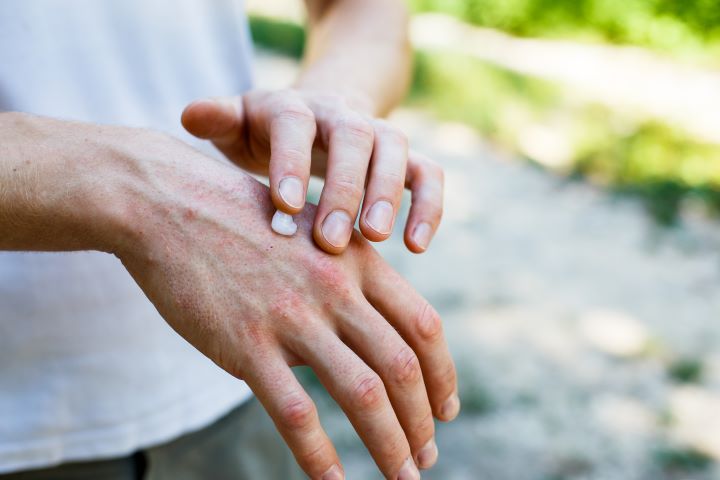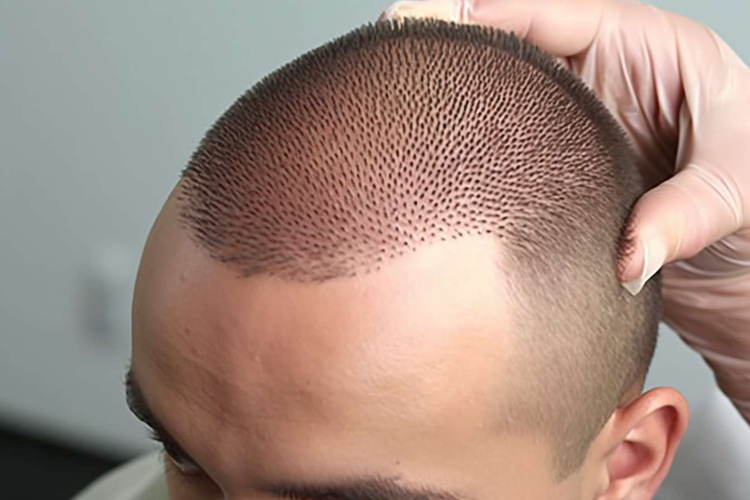Scalp Psoriasis Explained: Symptoms, Causes, and Relief Options
Scalp psoriasis is a chronic skin condition that can cause itching, flaking, and discomfort. In this article, we explore the key symptoms, possible causes, and treatment options that can help manage flare-ups and improve your quality of life without making exaggerated claims.

What Are the Common Symptoms of Scalp Psoriasis?
Scalp psoriasis manifests through several distinct symptoms that can range from mild to severe. The most recognizable sign is the presence of raised, reddish patches covered with silvery-white scales on the scalp. These patches may extend beyond the hairline to the forehead, neck, and around the ears. Many people experience intense itching and a burning sensation that can disrupt daily activities and sleep. Flaking is another common symptom, often mistaken for severe dandruff, but scalp psoriasis flakes tend to be thicker and more adherent to the scalp. In more severe cases, the scalp may crack and bleed, and temporary hair loss can occur in affected areas, though hair typically regrows once the condition is managed. Some individuals also report tenderness and soreness in the affected regions.
What Triggers Scalp Psoriasis Flare-Ups?
Understanding what triggers scalp psoriasis flare-ups is essential for effective management. Stress is one of the most commonly reported triggers, as it can weaken the immune system and exacerbate inflammatory responses. Infections, particularly streptococcal throat infections, have been linked to sudden onset or worsening of psoriasis symptoms. Weather changes, especially cold and dry conditions, can dry out the skin and trigger flare-ups. Certain medications, including lithium, beta-blockers, and antimalarial drugs, may also provoke or worsen symptoms. Skin injuries such as cuts, scrapes, or sunburns can lead to new psoriasis patches in a phenomenon known as the Koebner response. Alcohol consumption and smoking have been associated with increased severity and frequency of flare-ups. Additionally, hormonal changes during puberty, pregnancy, or menopause can influence the condition. Identifying personal triggers through careful observation and journaling can help individuals take proactive steps to minimize flare-ups.
What Are the Most Effective Treatment Options for Scalp Psoriasis?
Treatment for scalp psoriasis varies depending on the severity of the condition and individual response to therapies. Topical treatments are often the first line of defense and include corticosteroid solutions, foams, or shampoos that reduce inflammation and slow skin cell turnover. Coal tar preparations have been used for decades to decrease scaling and itching, though they may have a strong odor and can stain fabrics. Salicylic acid helps soften and remove scales, making it easier for other treatments to penetrate the scalp. Vitamin D analogues, such as calcipotriene, work by slowing skin cell growth and are often combined with corticosteroids for enhanced effectiveness. For moderate to severe cases, phototherapy using ultraviolet light can be beneficial, though treating the scalp specifically can be challenging due to hair coverage. Systemic medications, including oral or injectable biologics, target the immune system and are reserved for more resistant cases. Newer biologic therapies have shown promising results by specifically targeting the inflammatory pathways involved in psoriasis. A dermatologist can help determine the most appropriate treatment plan based on individual needs and medical history.
How Can You Manage Scalp Psoriasis Flare-Ups at Home?
Home management strategies play a crucial role in controlling scalp psoriasis symptoms between medical treatments. Gentle scalp care is essential; avoid scratching or picking at scales, as this can worsen inflammation and lead to infection. Use a soft-bristled brush and be gentle when combing hair to prevent irritation. Moisturizing the scalp regularly with emollients or oils, such as coconut or olive oil, can help soften scales and reduce dryness. Applying these oils before shampooing and leaving them on for several hours or overnight can make scale removal easier. Choose mild, fragrance-free shampoos designed for sensitive skin, and consider medicated shampoos containing coal tar, salicylic acid, or ketoconazole as recommended by a healthcare provider. Limit the use of heat styling tools and harsh chemical treatments that can further irritate the scalp. Stress management techniques, including meditation, yoga, or regular exercise, can help reduce flare-up frequency. Maintaining a balanced diet rich in anti-inflammatory foods, such as fatty fish, leafy greens, and fruits, may also support overall skin health. Staying hydrated and getting adequate sleep are foundational practices that support immune function and skin repair.
Which Scalp Psoriasis Treatments Are Most Commonly Prescribed by Dermatologists?
Dermatologists typically prescribe treatments based on the severity and extent of scalp psoriasis. Topical corticosteroids remain the most commonly prescribed initial treatment due to their effectiveness in reducing inflammation and itching. These are available in various strengths and formulations, including solutions, foams, and oils that are easier to apply to the scalp. Calcipotriene, a vitamin D derivative, is frequently prescribed either alone or in combination with corticosteroids to enhance efficacy while minimizing potential side effects from long-term steroid use. For patients with significant scaling, dermatologists often recommend salicylic acid preparations to facilitate scale removal. Coal tar shampoos and solutions are also commonly prescribed, though their use has declined somewhat due to cosmetic concerns. In cases where topical treatments prove insufficient, dermatologists may prescribe systemic therapies such as methotrexate, cyclosporine, or acitretin. Biologic medications, including adalimumab, etanercept, and newer agents like guselkumab and risankizumab, are increasingly prescribed for moderate to severe cases that do not respond to conventional treatments. These biologics target specific components of the immune system responsible for psoriasis inflammation. Dermatologists also emphasize the importance of consistent treatment adherence and regular follow-up appointments to monitor progress and adjust therapy as needed.
Conclusion
Scalp psoriasis is a manageable condition with a wide range of treatment options available. Recognizing symptoms early, understanding personal triggers, and working closely with healthcare providers can lead to significant improvement in both symptoms and quality of life. While there is currently no cure for scalp psoriasis, ongoing research continues to bring new and more effective treatments to those affected. Combining medical treatments with thoughtful home care strategies offers the best approach to controlling this chronic condition. Individuals experiencing persistent or worsening symptoms should consult a dermatologist for personalized evaluation and treatment planning.
This article is for informational purposes only and should not be considered medical advice. Please consult a qualified healthcare professional for personalized guidance and treatment.




